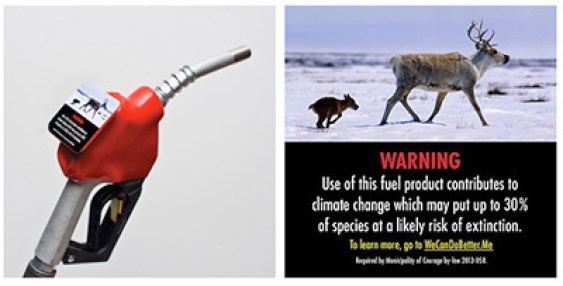The Editor,
Re. “Labels for PoMo gas pumps” (The Tri-City News, March 18).
In 2015, Our Horizon, an Ontario-based organization, began lobbying B.C. municipalities to mandate gas stations to help fight against climate change. Its campaign seeks to place climate change warning labels on the handles of local gas pumps. Our Horizon’s goal is to persuade drivers to reduce greenhouse gas emissions by lowering their fuel consumption.
With any type of warning labelling program, it is logical to focus initial attention on products with the most serious harmful effects. Our Horizon’s campaign, however, takes the opposite approach and hence falls short on several counts.
First, in the context of climate change, the United Nations’ most recent estimate is that the transportation sector contributes 13% of global greenhouse gas (GHG) emissions. This sector includes all modes of transport — cars, trains, ships, and planes — with air travel being the leader by far in terms of emissions per passenger kilometre. If this is the case, does it not make more sense to place warning labels on plane tickets rather than gas pumps? Why not aim for a more sizeable reduction in transportation GHG emissions by targeting the air travel industry?
Second, in a larger context, the transportation sector’s contribution to global GHG emissions is below that of the animal agriculture sector, pegged at a minimum of 15%. So why not create a labelling program for animal products? Particularly when within the animal agriculture sector, beef and dairy production accounts for 61% of GHG emissions. If we follow the logic of applying warning labels by focusing on the worst offenders, packages of beef and cheese should carry dire climate change warning labels. Perhaps environmental groups, including Our Horizon, should consider lobbying for this more meaningful labelling campaign.
Thus, if society is serious about reducing total GHG emissions, we should target the most egregious contributors in the most prominent sectors first, not the other way around.
Patricia Tallman, Langley
Editor’s note: Patricia Tallman will give a seminar on “How our food choices impact the environment and our health” at Port Coquitlam’s Terry Fox Library on April 20.



